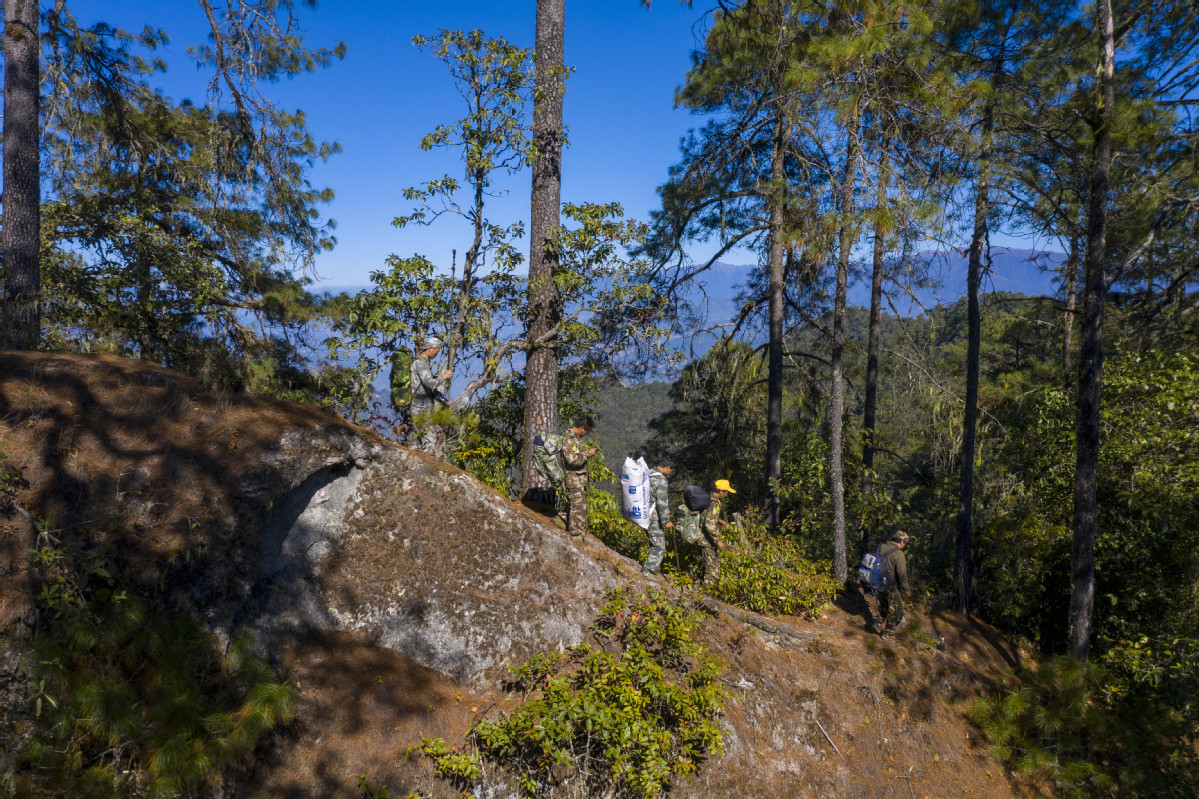Ranger jobs in Yunnan forests raise incomes

Rangers patrol the Gaoligong Mountains National Nature Reserve in Yunnan province in December. JIANG WENYAO/XINHUA
Yunnan province has helped large numbers of people from different ethnic groups out of poverty by hiring them to work as forest rangers, the province's forestry and grassland administration said recently.
Statistics from the administration show that by the end of last year, the province had spent more than 4.3 billion yuan ($660 million) hiring people, especially those struggling with poverty, to work as forest rangers.
Yunnan had 240,000 square kilometers of forest by the end of 2019, when it was home to 442,000 impoverished people, according to a report by China News Service.
Hiring poor people to take part in the management and protection of forests would not only alleviate poverty, but also protect forest ecosystems, the administration believed.
The province has now established China's largest forest and ecological protection team, the administration said, with 183,000 local residents given work.
Each forest ranger can earn 9,000 yuan a year, benefiting both the rangers and their family members, it added.
"In that sense, the program enabled at least 780,000 poor people in Yunnan-or 17 percent of the province's impoverished population-to have stable incomes," the administration said.
Almost all the residents of the Dechen Tibetan and Nujiang Lisu autonomous prefectures capable of working are benefiting from the forest ranger employment program.
The two prefectures are located in an area where three important rivers-the Jinsha, Lancang and Nujiang-flow parallel to each other from north to south.
The administration said more than 75 percent of the area is covered by forest, making it one of the most biologically diverse places in the world, let alone China.
However, the area's stunning natural scenery also made life difficult for thousands of members of the Derung, Pumi and other ethnic groups. Their constrained social environment, poor traffic conditions and lagging economic development meant the two prefectures were mired in deep poverty.
The implementation of the forest ranger program has greatly changed local residents' lives by helping them land jobs and increasing their incomes.
Li Yuhua, a member of the Derung ethnic group who lives in Nujiang's Gongshan Derung and Nu autonomous county, is just one example.
Her six-member family used to be classified as poor, with a per capita annual income of no more than 2,500 yuan.
In 2016, she was hired as a forest ranger. In her daily work, Li wears traditional Derung clothing as she patrols the county's mountain forests, monitoring wildlife and checking for illegal tree felling and hunting. The job brings her a monthly income of 800 yuan.
At the same time, she grows plants that can thrive in the forest, like Lanxangia tsaoko, kudzu vine roots (or gegen), which can be used in traditional Chinese medicine, and tea seedlings.
All these efforts had raised the average annual income of each member of her family to 11,000 yuan by the end of last year, she said.
"By doing this job, I can not only feed my family, but also contribute to the protection of forest resources," Li said, adding that she's content with her work and life.